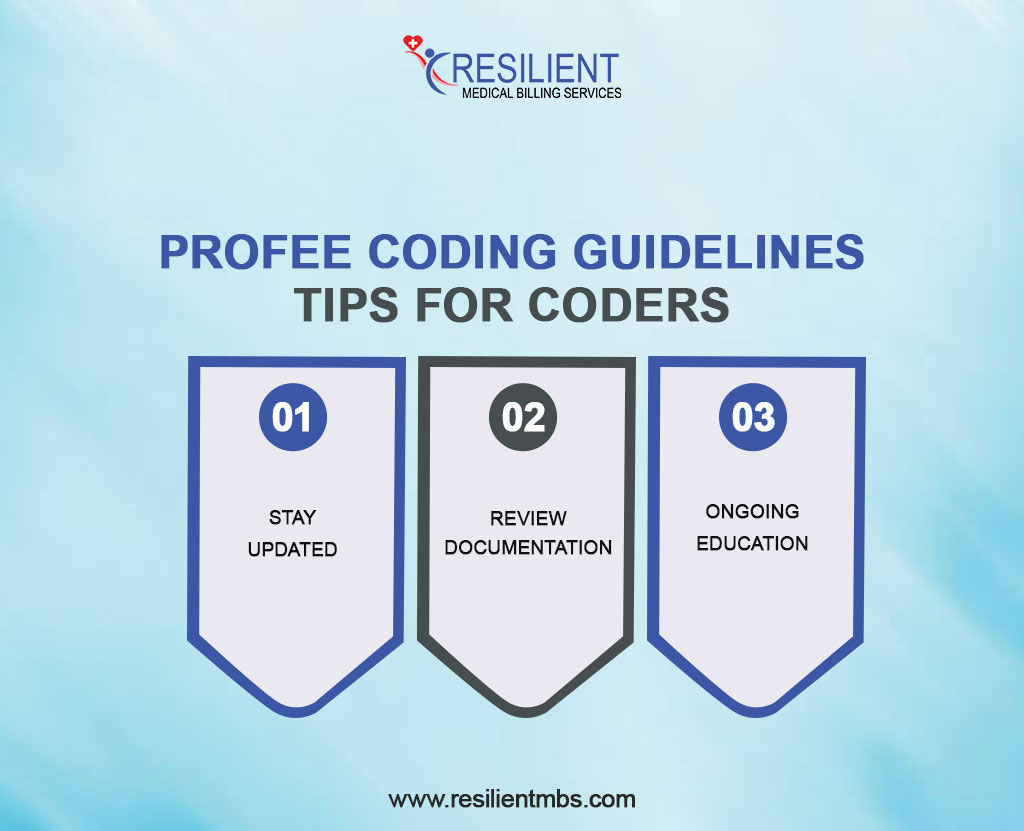Have you ever wondered how healthcare providers get paid for the services they offer—or how your medical visits turn into those mysterious codes on your insurance statement? That’s where medical coding comes in. It’s the behind-the-scenes process that transforms every diagnosis, procedure, and medical service into standardized alphanumeric codes.
These codes aren’t just for show, they help physicians comply with complex healthcare rules, keep medical records accurate, and simplify billing. Professional Fee Coding (Profee Coding) is a specialized area focused on accurately documenting and billing physician services, ensuring doctors are properly reimbursed for care provided in any setting—from routine visits to complex surgeries. Medical coders play a vital role, with employment in the field expected to grow 8% from 2022 to 2032, according to the U.S. Bureau of Labor Statistics, which is faster than the average for all occupations.
Additionally, AAPC reports that certified professional coders can earn an average annual salary of $58,895, with Profee coders often commanding even higher pay due to the specialized nature of their work.
As regulations change and the healthcare industry becomes more data-driven, there is a huge need for skilled coders, especially Professional coders. That, along with the high pay and job security, makes medical billing and coding one of the most appealing jobs in healthcare right now. This blog post is about Profee coding. It will talk about the differences and show some important parts.
What is Profee Coding?
Profee coding is short for Professional Fee Coding. This refers to the process of coding and billing for services provided directly by physicians or other qualified healthcare professionals.
This branch of medical coding Profee, captures the professional work of providers, such as patient evaluations, medical procedures, and consultations, and ensures these services are accurately documented and reimbursed by insurance companies.
How Profee Coding Works
Profee (Professional Fee) coding focuses on the services provided by physicians and other healthcare professionals, typically in a hospital or outpatient setting. Unlike facility coding, which captures the use of equipment and space, Profee coding assigns CPT, HCPCS, and ICD-10 codes based on the provider’s documentation of patient care.
The process begins with a thorough review of clinical notes, ensuring all procedures and diagnoses are accurately reflected. Certified professional coders then translate this information into standardized codes used for billing insurance companies.
Accurate Profee coding ensures timely reimbursement, reduces claim denials, and supports compliance with healthcare regulations.
CPT Codes In Profee Coding
CPT codes, or Current Procedural Terminology codes, are essential for billing and documentation in healthcare. In professional fee (ProFee) coding, these codes represent the services provided by physicians and other healthcare providers.
ProFee coding typically involves assigning the correct CPT codes to describe office visits, surgeries, diagnostic tests, and procedures. This ensures accurate billing and reimbursement from insurance companies.
Here are some commonly used CPT codes in professional fee (ProFee) coding:
99203: Office or other outpatient visit, typically 30 minutes, for the evaluation and management of a new patient.
99213: Office or other outpatient visit, typically 15 minutes, for the evaluation and management of an established patient.
99233: Subsequent hospital care, typically 35 minutes, for the evaluation and management of a patient.
71045: Chest X-ray, single view, frontal.
93000: Electrocardiogram, routine, with interpretation and report.
70450: CT scan of the head or brain, without contrast.
99285: Emergency department visit, typically 60 minutes, for the evaluation and management of a patient.
99291: Critical care services, providing at least 30 minutes of direct critical care.
27650: Surgical treatment of the ankle, tendon repair.
36415: Collection of venous blood by venipuncture.
Key Differences Between Profee Coding and Facility Coding
Profee coding (short for professional fee coding) and facility coding differ primarily in what they bill for. Profee coding focuses on services provided by individual healthcare providers, such as physicians, and is typically used in outpatient settings.
Facility coding, on the other hand, covers hospital or clinic resources, including equipment, nursing staff, and overhead.
Responsibilities also vary. A Profee coder translates provider documentation into CPT and ICD-10 codes, ensuring accurate representation of the physician’s work.
A facility coder concentrates on technical services, capturing everything from room charges to medications administered during a visit.
The billing focus is a key difference. Profee coders handle professional services for reimbursement under the provider’s National Provider Identifier (NPI), while facility coders bill technical charges under the institution’s facility NPI.
Profee Coding Guidelines and Compliance
Profee coding follows strict guidelines, including CPT, ICD-10-CM, and HCPCS Level II codes. Coders must stay updated on payer-specific rules and regulatory changes, such as E/M coding revisions.

Accuracy and proper documentation are important to avoid claim denials, compliance issues, and revenue loss. Profee coders must ensure physician documentation aligns with the billed codes.
Profee coders help maintain clean claims, reduce audit risks, and ensure correct reimbursement for providers. Ongoing education and adherence to best practices are essential for accurate healthcare reimbursement.
Tips for Coders
To excel in Profee coding, professionals must focus on continuous learning and quality assurance. Some key tips are:
- Stay Updated: Regularly review updates from CMS, AMA, and certifying bodies (AHIMA, AAPC) on coding guidelines and payer policies.
- Review Documentation: Ensure clinical documentation is complete and clear, supporting code selection and medical necessity.
- Ongoing Education: Participate in training, webinars, and peer reviews to enhance accuracy and proficiency.
Contact Resilient MBS today to ensure your professional fee coding is compliant, efficient, and revenue-boosting.
The Role of Profee Coding in Reimbursement and Pay
Professional coding is a key part of making sure that medical professionals and other professional healthcare workers get paid correctly and on time. Its accuracy has a direct effect on both regulatory compliance and financial success.
How Medical Billing and Coding Pay Structures Relate to Profee Accuracy
In professional billing, coders are responsible for translating clinical services into standardized codes that determine reimbursement levels. Any inaccuracy in Profee coding can result in:
- Underpayment, leading to revenue loss for providers
- Overpayment, which can trigger audits, penalties, or repayments
- Claim denials delay payment and increase administrative burden.
Accurate Profee coding ensures that providers are fairly compensated based on the level of care and complexity of services rendered.
Bottom Line
Profee coding, short for Professional Fee Coding, is a specialized area within medical coding that focuses on the physician’s portion of care. Unlike facility coding, which pertains to the technical services and overhead provided by the hospital or clinic, Profee coding zeroes in on the work performed by healthcare providers themselves.
Staying current on medical coding standards, CPT code revisions, and payer-specific requirements is essential in today’s healthcare environment. For accuracy and compliance, coding and billing specialists must continuously learn to keep up with industry developments.
Connecting with trusted coding organizations and certified training programs can help healthcare firms improve billing procedures and coding professionals improve their abilities. Career advancement and operational success require continuing knowledge of Profee coding norms.
Resilient MBS provides professional coding accuracy, reimbursement optimization, and compliance audits. Our medical billing audit and consultation services are customized for your clinic.










